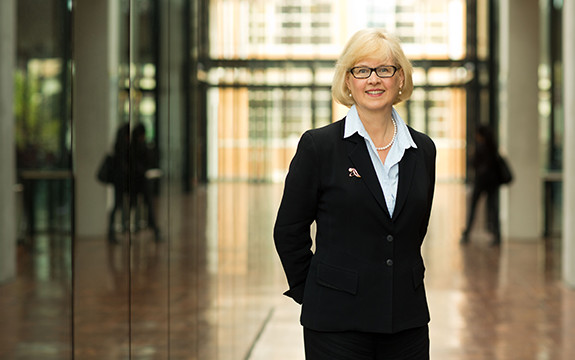Building the skills for an innovative economy

More from Swinburne University

As part a series exploring how Australia can transform its economy using technology and innovation to fuel future growth and prosperity, Swinburne Vice-Chancellor Professor Linda Kristjanson answers questions about the future of education. This article was first published online in The Australian.
Yes. Already a number of Australian schools do this of their own accord. Programming teaches many useful transferable skills. It’s a great way to teach problem-solving in a way that makes learning enjoyable. In coming decades, we will need to have a more information technology literate society, which a greater early focus on coding would help.
Does maths and science teaching in schools prepare students to succeed in STEM university study? If not, why not?
One of my greatest concerns is that fewer students are coming through secondary school with advanced or intermediate mathematics . For students who don’t take maths and science at school, it’s unlikely that many will change course and choose STEM subjects at university.
I’d like to see more students keeping their options open by studying mathematics and science at school. This is particularly the case for girls, many of whom have terrific aptitude for scientific thinking but who are often pressured to drop these subjects as they progress through high school.
Are we producing enough STEM and business graduates and are we teaching them in ways that ensure they can apply what they study in the workplace?
This is a question which is often posed and answered in a narrow way. The value that universities add is not just whether universities are supplying enough good graduates in each given year for industry’s immediate employment needs.
Yes, we need to think about what the end-users of our graduates need right now but we also need to think about what capabilities will equip our graduates to be successful as the economy changes.
We absolutely need more graduates who are entrepreneurial and can create their own employment futures.
Are university degrees the best way to prepare people for a world where technology will ensure jobs will quickly appear and disappear?
Yes. University degrees prepare students to be critical thinkers. They develop teamwork, communication and other critical skills which are needed to be successful in the workplace.
Increasingly, university will prepare people to be adaptable, innovative and forward thinking in response to societal and technological change.
Is it possible to teach students in school and post-school education and training how to be innovators and entrepreneurs?
Yes, but we need to do this in conjunction with industry. Innovation and entrepreneurialism can’t be taught in purely theoretical ways. These are areas where students learn best through doing.
At Swinburne, we have programs that throw students into solving real problems posed by industry partners.
By giving students exposure to real-life problems as well as appropriate industry mentoring and support, we give people the confidence and resilience they need to be successful entrepreneurs.
What are the five disciplines that Australia needs to focus education on and why?
Design: Innovative design thinking will shape our future. It’s not just about creating good-looking things, but products and services which are functional and make lives better.
Engineering: Australia has historically had strong engineering programs but it’s a field we need to maintain our edge in.
Information and communications technology: Technology is so much a part of everyone’s daily life and we’re never going back. This is not just about making Australians tech-savvy but ensuring that we have the right people with in-depth professional knowledge and expertise to drive forward new applications in technology.
Commercialisation: Australia does poorly at translating research into marketable products and services. It’s difficult but important work and unless we can lift our national game, we’ll continue to see the outcomes of Australian research disappear overseas to be exploited by others.
Ageing: As medical technology improves and our population gets older, the products and services they require to maintain healthy lifestyles will change. This is a frontier territory for us and will require new thinking across many disciplines, and not just the obvious ones in health, science and personal services.